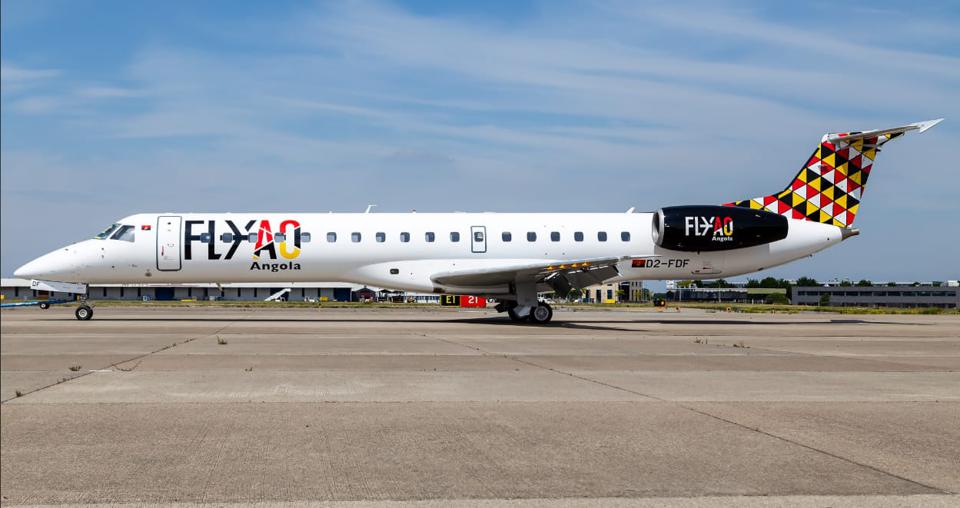
Fly Angola’s single Embraer ERJ-145 has been re-painted and is now being flown under the company’s … [+]
Privately owned African airline Fly Angola has used the covid-19 downturn as an opportunity to overhaul its aircraft and secure a local Air Operator’s Certificate (AOC).
The company previously marketed flights as a virtual carrier alongside technical partner AeroJet, deploying one Embraer ERJ-145 on flights from Angola’s capital Luanda to a handful of domestic airports
It was forced to suspend operations in March 2020 when the government declared a state of emergency in response to the covid-19 pandemic. But management used the downtime to complete a six-month certification process under the auspices of Angola’s civil aviation authority, Instituto Nacional da Aviação Civil (INAVIC).
That initiative bore fruit on 21 December when Gaspar Santos, INAVIC’s director general, issued Fly Angola with a domestic AOC. Flights resumed two days later.
“Domestic demand has been reduced to essential trips,” general manager Belarnício Muangala told me.
“Travel restrictions and the current sanitary measures are obvious challenges. But fortunately this reduction was not enough to make the provision of scheduled services unfeasible. Our reduced service schedule has now been revised twice due to the increasing demand.”
Fly Angola’s fully-owned aircraft (registration D2-FDF) has also been re-painted in the company’s livery and undergone heavy maintenance checks in Europe.
Earlier plans to grow the fleet with a second ERJ-145 plus a smaller EMB-120 have been put on hold, Muangala said, but the project is still considered viable. “The biggest challenge is the access to financing at reasonable costs in Angola rather than demand,” he noted.
Expansion of the network to Cabinda – an oil-rich exclave situated beyond Angola’s border with the Democratic Republic of the Congo (DRC) – was also derailed by the state of emergency just days before the inaugural flight.
Despite the ongoing challenges, however, Muangala believes that 2021 is a “year of hope” for the local sector.
“For now all operations are based in Luanda,” he said, referring to flights from the capital to Dundo and Saurimo in the east, and Benguela and Lubango in the west.
“But aviation is not a static industry and that makes it even more exciting … During the state of emergency Luanda province was isolated, but all mobility between the other 17 provinces was unrestricted. Buses and minivans continued their commercial services. Is this not an obvious opportunity for a hub out of Luanda?”

INSTITUTO NACIONAL DA AVIAÇÃO CIVIL (INAVIC)


